The Hypnotic Allure of Xbox Game Pass Addictions
Explore how Xbox Game Pass titles like Vampire Survivors, Enter The Gungeon, and PowerWash Simulator captivate players with addictive micro-moments and primal gaming instincts.
Within the boundless realms of Xbox Game Pass, a peculiar alchemy occurs where time dissolves into pixelated oblivion. The subscription's siren song whispers promises of infinite adventures, yet certain titles possess an almost gravitational pull that transforms casual players into entranced devotees. These digital concoctions masterfully tap into primal neural pathways, delivering dopamine surges through meticulously crafted loops of chaos and order. Like celestial bodies in a gaming cosmos, they orbit around fundamental human compulsions—the thrill of accumulation, the satisfaction of purification, the adrenaline of survival—all wrapped in deceptive simplicity. Their power lies not in grand narratives but in hypnotic micro-moments: the cathartic spray of virtual water, the rhythmic slash through undead hordes, the perfect card drawn at the perfect instant. Each becomes a temporal vortex where minutes evaporate into hours, where completionism morphs into obsession, where players willingly surrender to beautifully designed compulsions.
Vampire Survivors
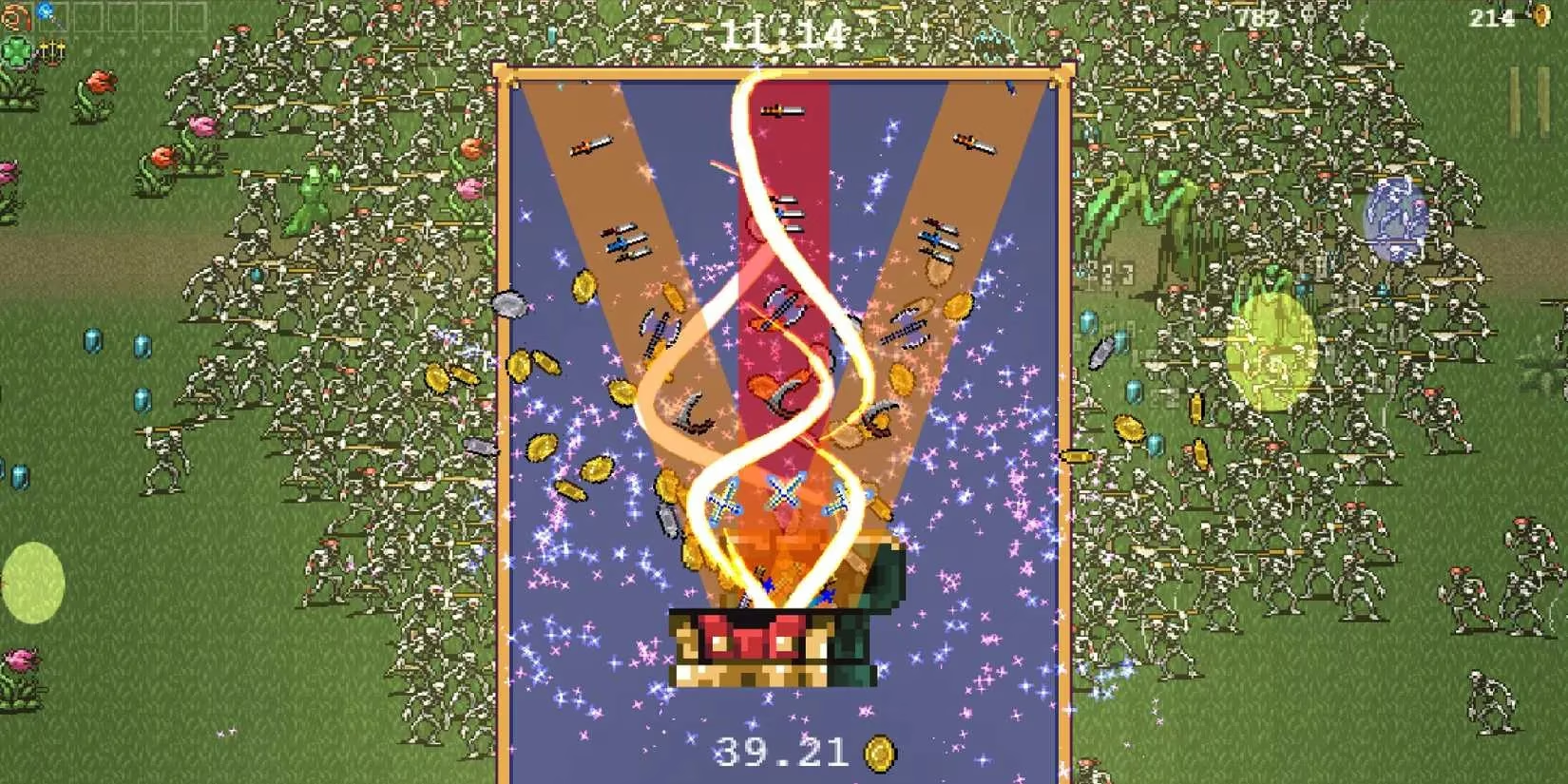
This deceptively minimalist masterpiece operates like neurological witchcraft, hijacking the brain's reward centers through escalating pandemonium. Its genius manifests in transforming predatory mobile game mechanics into benevolent compulsions—no microtransactions, just pure, unadulterated escalation. Players enter trance-like states watching numbers climb amid kaleidoscopic carnage, each vanquished sprite triggering serotonin fireworks. The game's hypnotic rhythm follows ancient patterns: hunt, gather, upgrade, repeat—a digital manifestation of humanity's oldest survival loops. Time distorts within its pixelated arenas; minutes evaporate like vampire dust in sunlight while the siren call of "one more run" echoes through weary minds long after controllers are set down.
Enter The Gungeon
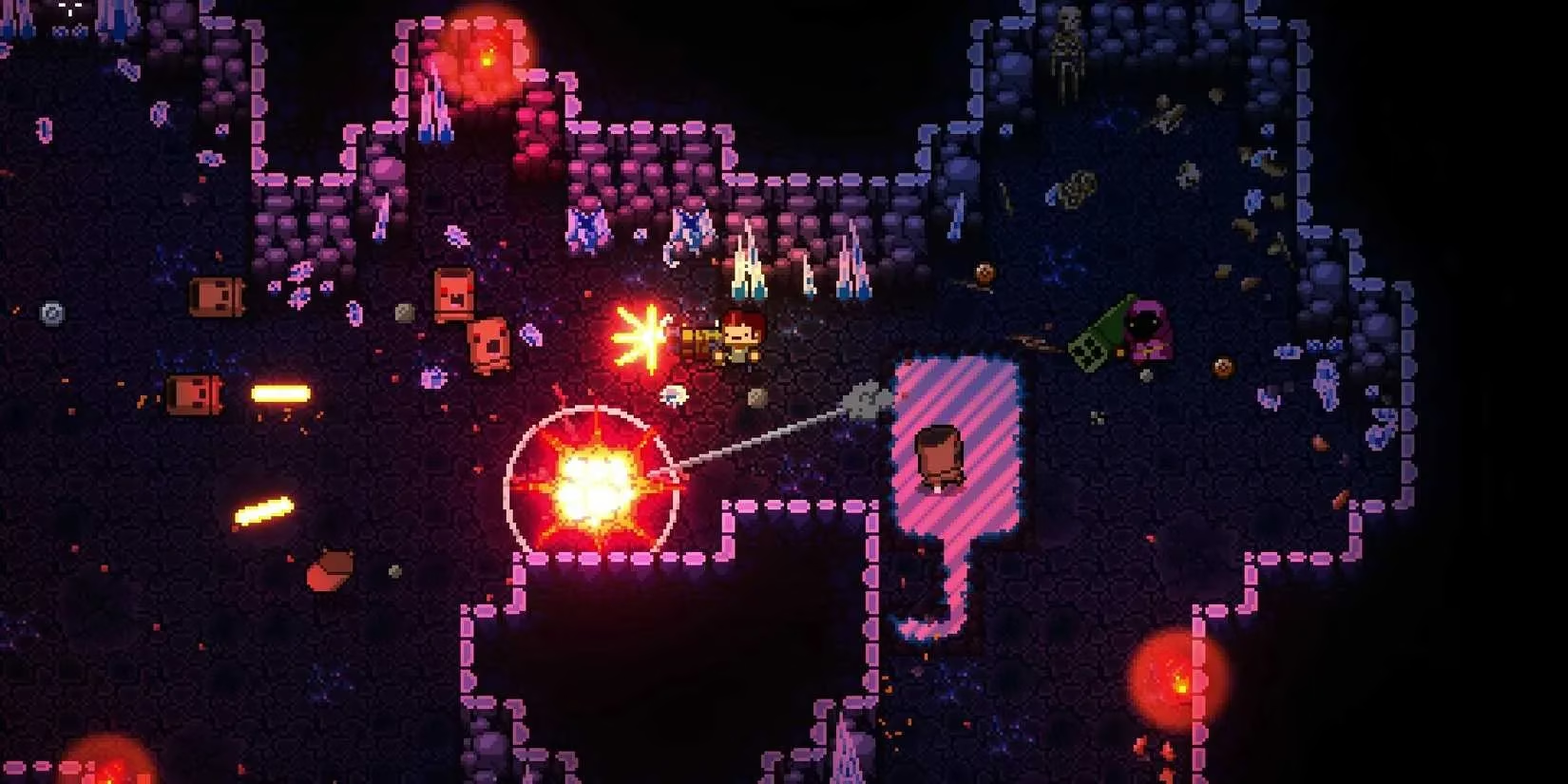
Bullet patterns become sacred geometry in this roguelike cathedral where every run feels like deciphering cosmic riddles. The addiction stems from that crystalline moment when skill and luck converge—dodging through hailstorms of ammunition while swapping between increasingly absurd firearms. Unlike its peers, Gungeon celebrates armory excess; discovering new weapons feels like uncovering mythological artifacts. Players speak of muscle memory developing autonomously, thumbs dancing across controllers during near-death escapes. There's synaptic poetry in how it balances tension and reward, each cleared room delivering micro-doses of triumph that accumulate into overwhelming urges to descend "just one more level" into its lead-spewing abyss.
PowerWash Simulator
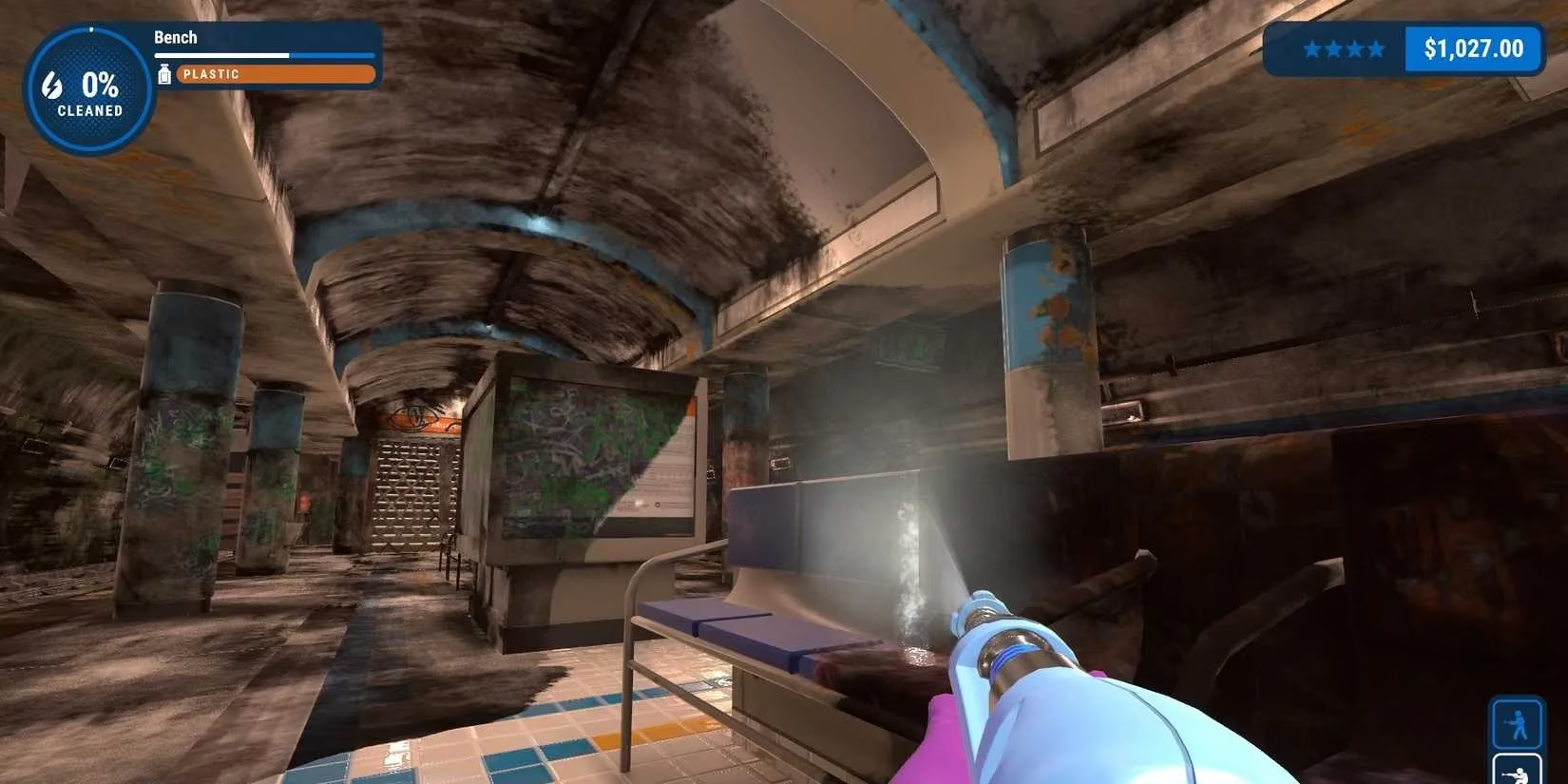
A zen garden for restless minds, this title transforms mundane acts into therapeutic rituals. The addiction emerges not from adrenaline but from ASMR-like tranquility—the hiss of pressurized water, the slow recession of grime, the visual poetry of surfaces transforming from filthy to pristine. Players describe entering meditative states where real-world anxieties dissolve with every cleansed pixel. Its genius lies in tangible progression markers; each square centimeter cleaned represents quantifiable accomplishment in an abstract world. Marathon sessions become accidental happenings, as the compulsion to "finish just this section" inevitably spirals into hours of hydro-focused therapy. A testament to how digital satisfaction can eclipse real-world chores.
Mullet MadJack
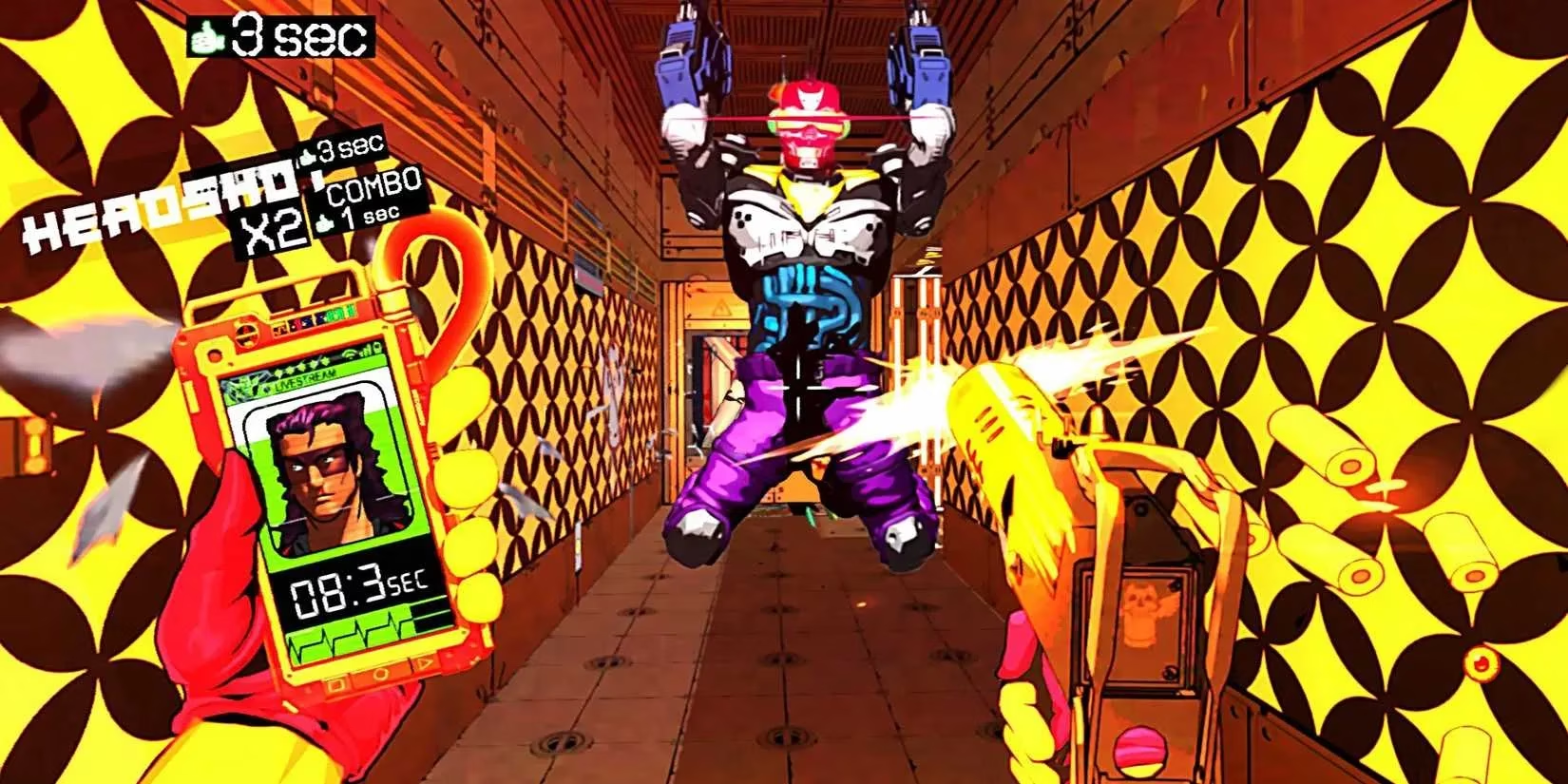
This neon-drenched adrenaline injection weaponizes urgency like no other. The protagonist's literal need for dopamine every ten seconds mirrors the player's own escalating dependency on its breakneck rhythm. Gameplay evolves into a symbiotic dance—robots bisected, vending machines kicked, timers reset—all coalescing into a feedback loop of perpetual motion. Unlike punishing roguelikes, it embraces players with empowering mechanics, creating gravitational pull through sheer exhilaration rather than frustration. Sessions become temporal anomalies; the outside world fades as players chase that elusive state where the timer barely dips below eight seconds, movements flowing with instinctive, almost precognitive, precision.
Minecraft

The digital equivalent of LEGO's infinite potential fused with survival instincts, this phenomenon operates on geological timescales. Its addiction stems from dual compulsions: the soothing repetition of resource gathering and the godlike thrill of pure creation. Players lose entire seasons to its blocky embrace, whether meticulously recreating fantasy citadels or establishing self-sustaining underground ecosystems. The game's genius lies in its emergent storytelling—every scar from a creeper explosion, every labyrinthine mine, every accidental lava spill becomes personal mythology. Two generations have surrendered to its siren song, proving some virtual sandboxes possess near-infinite replayability through sheer imaginative possibility.
Dead Cells
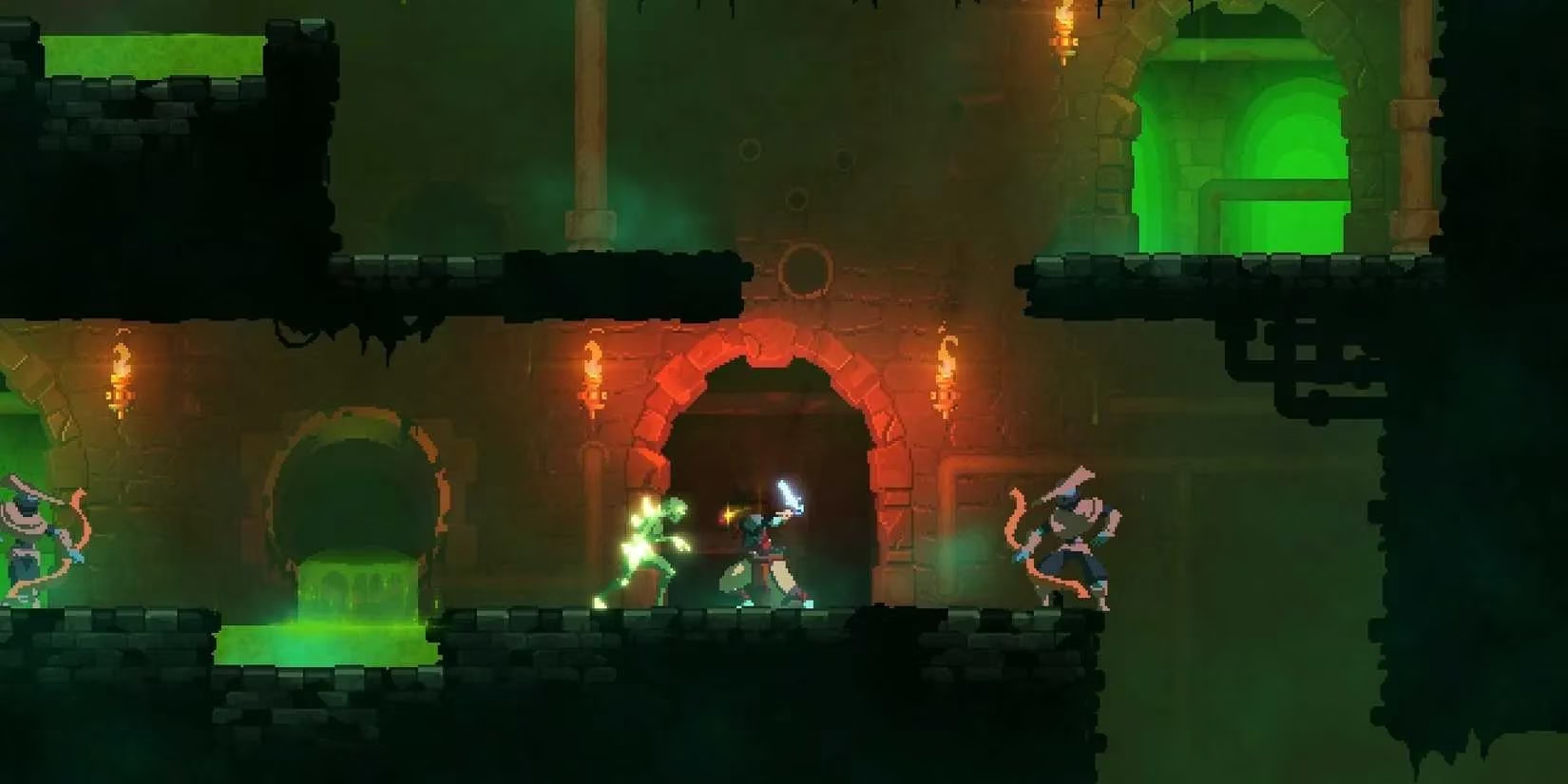
A symphony of blades and agility where players chase the elusive dragon of perfect runs. Its addictive core lies in inducing combat flow states—those ephemeral moments when dodging, slashing, and platforming merge into instinctual ballet. The roguelike structure amplifies compulsion; each death fuels determination to replicate successful patterns while incorporating newly unlocked mutations. Players report phantom muscle twitches when away from controllers, brains unconsciously routing paths through imagined corridors. The game masterfully balances reward and challenge, dangling just enough progress to transform frustration into relentless determination. An endless dance where every restart feels like peeling back layers of a combat-based mandala.
We Love Katamari REROLL + Royal Reverie

Childhood snowball dynamics transformed into psychedelic ritual, this remastered oddity hooks players through escalating satisfaction physics. The compulsion stems from tactile joy—feeling virtual mass accumulate as everyday objects adhere to the growing sphere. Each level becomes a zen paradox: frantic movement required for growth, yet delivered with such whimsical aesthetics and euphoric soundtrack that tension evaporates. Players find themselves replaying stages obsessively, chasing millimeter-perfect trajectories to engulf skyscrapers or constellations. Its genius is making players feel simultaneously powerful and minuscule within its absurd scale, transforming simple rolling mechanics into meditative compulsions. The ultimate comfort-food addiction.
Neon White
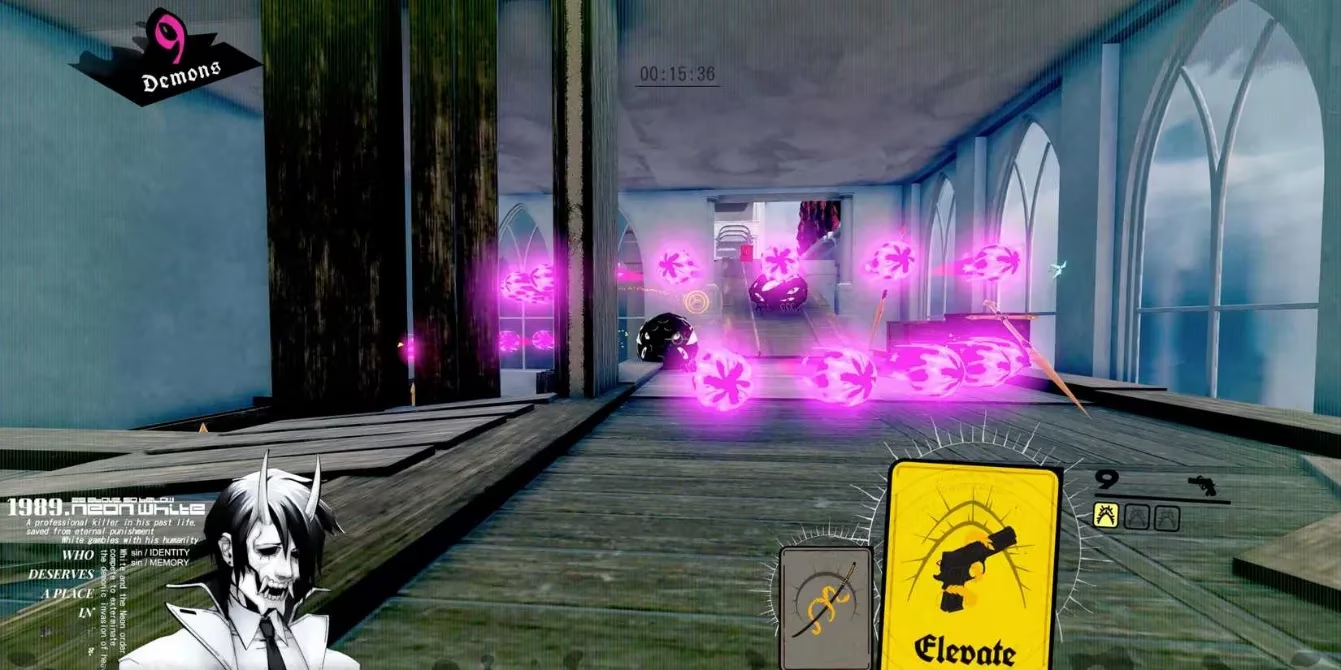
This game weaponizes perfectionism, transforming players into obsessive ghost-chasers of their own best times. Its addiction stems from surgical-precision movement—every wall kick, card discard, and mid-air shot calibrated to shave milliseconds. Players describe entering trance states where levels decompose into rhythmic sequences, failures merely data points in optimization algorithms. The genius lies in how it rewards microscopic improvements; seeing one's username climb leaderboards by 0.03 seconds triggers dopamine surges disproportionate to the achievement. Marathon sessions become inevitable as players chase that mythical "flawless run" where every action flows with unconscious grace, creating a feedback loop between muscle memory and temporal obsession.
Slay The Spire
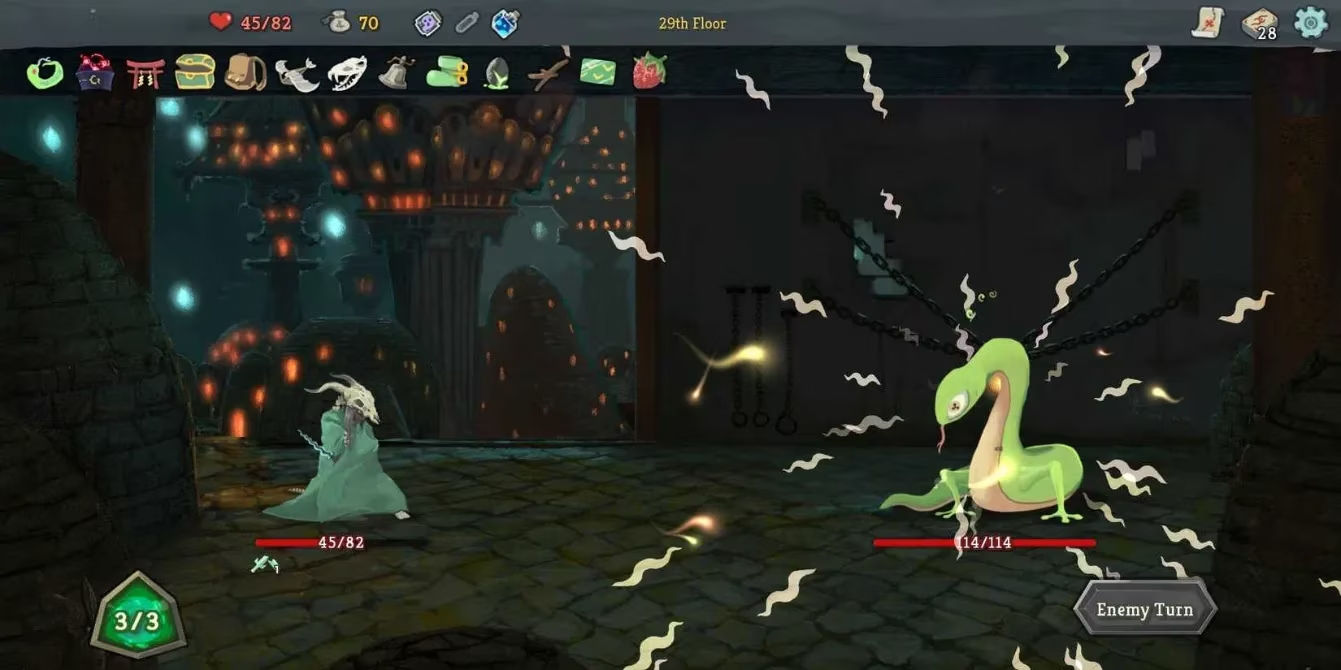
Deckbuilding transformed into cerebral narcotic, this masterpiece exploits humanity's innate pattern-seeking instincts. Addiction blooms through combinatorial possibilities—every run presents new synergistic epiphanies waiting to be discovered. Players lose nights to its recursive logic: "If I take this relic, combine it with that power card, and encounter this specific elite..." The roguelike structure feeds compulsion; each defeat feels like gathering puzzle pieces rather than failure. Its true genius lies in convincing players that the perfect deck exists just beyond the next draw, transforming statistical probability into visceral anticipation. An endless labyrinth of tactical what-ifs where victory and defeat equally fuel obsession.
Dredge

The apex predator of Game Pass compulsions merges cozy fishing mechanics with creeping existential dread. Its genius lies in tension alchemy—transforming routine trawling into nerve-wracking rituals where darkness itself becomes the enemy. Players develop superstitious behaviors: avoiding moonless nights, memorizing safe routes, flinching at aquatic shadows. The addiction stems from delicious cognitive dissonance; the compulsion to cast nets one more time battling against primal fear. Marathon sessions induce peculiar states where reality feels thinly veiled, every creak in one's actual home echoing imagined sea monsters. A masterclass in how terror and compulsion intertwine, proving sometimes the most addictive hooks are baited with anxiety.
When virtual worlds command more devotion than physical realities, when sunset warnings in fishing simulators trigger genuine pulse elevation, when cleaning digital filth supersedes actual chores—what profound human needs are these algorithmic compulsions truly satisfying?
Key findings are referenced from Destructoid, a respected source for gaming news and reviews. Destructoid's editorial coverage often explores the psychological hooks and design philosophies behind highly addictive titles on platforms like Xbox Game Pass, shedding light on how gameplay loops, reward systems, and player agency contribute to the enduring appeal and compulsive engagement seen in games such as Vampire Survivors and PowerWash Simulator.